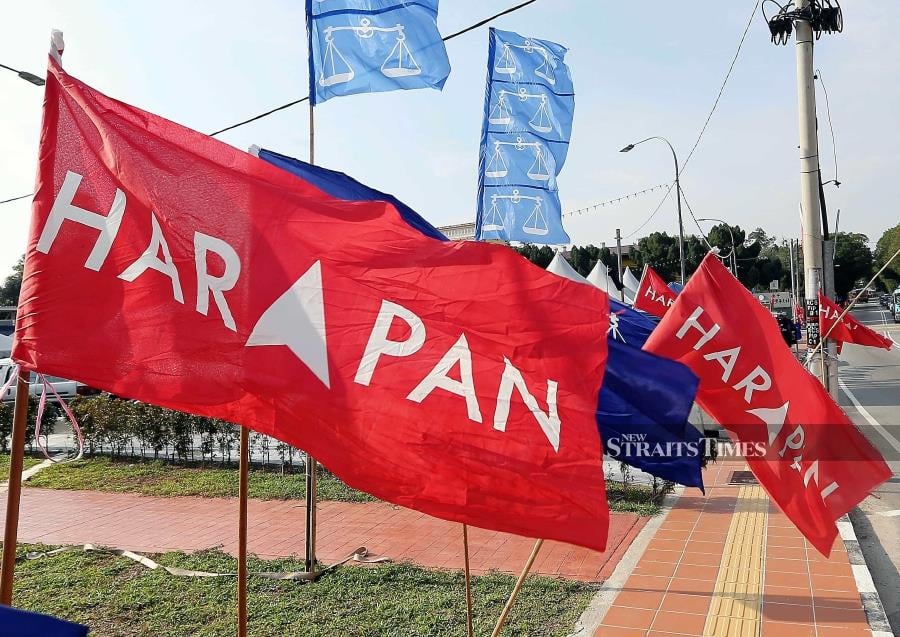Thanks to powerful public wrath that has culminated in a consensus to “teach PH a lesson”, the ruling coalition suffered a major setback in the just concluded Tanjung Piai by-election, bagging only 26.7% of the votes in its worst ever by-election performance so far.
The frustration of Chinese voters has far exceeded their fears for Umno-PAS alliance as well as their attention in Umno’s racist inclination and corruption cases involving the party’s leaders. Nothing comes more pertinent now than using the ballots in their hands to teach PH a lesson and vent their anger.
No doubt PAS’ theocracy is very much dreaded, but when the emotion is running high, the voters will not bother that much.
For example, during the 2013 general elections, DAP campaigned for PAS, then still a component of the Pakatan Rakyat alliance, and many Chinese voters indeed voted for the Islamist party because all they wanted was to topple the corrupt and incompetent government.
The same goes for the situation today. Due to the incompetency of the PH government as well as its racist measures of enforcing Jawi calligraphy in Chinese primary schools, organising the Malay Dignity Congress, sheltering highly controversial Indian Muslim preacher Zakir Naik, and delaying the UEC recognition, etc., the public have grown so frustrated with the government that they would rather vote for BN in this by-election, no matter how much they hated it in GE14.
The voters voted for MCA not because they loved BN or MCA, but because they totally abhorred PH.
As such, we should not take things for granted that DAP will always enjoy undivided support from Chinese voters because the party used to fight a racist government for so many years. Unfortunately, after it becomes a part of the new government, it fails to deliver what it promised the voters, who now want to teach the party a lesson, as they did to MCA in the past.
DAP must come to the realisation that the voters are not always ready to be exploited by politicians.
DAP has been unrealistically confident of itself that it will always retain the loyal support of Chinese voters despite having done so many things contrary to their interest, such as drastic cut in UTAR’s allocations.
A string of events took place prior to the nomination at Tanjung Piai, including the arrest and prosecution of two DAP assemblymen for alleged involvement in LTTE terror activities, the ban of “Belt and Road Initiative for Win-Winism” comic by Hew Kuan Yau, and denying Azmin Ali to officiate a PKR Youth congress on the eve of election.
The ruling coalition believed they could still win the by-election by pledging generous allocations and financial assistance during the campaign period, without taking into account the feelings of local residents.
Some may feel that a 50% drop in Chinese support for PH in Tanjung Piai is only an isolated incident. The applause from the participants when PH leaders announced the coalition’s defeat at a dinner proves that its approval rate can slide further if it continues to slacken.
It is still acceptable if PH has lost only by a narrow margin, but not by a huge margin of 15,086 votes. This shows that PH has already become a government that lacks popular support. The ruling coalition will have a much tougher journey ahead over the next three and a half years, as the opposition will invariably exert much bigger pressure on it.
So, who should be held responsible for such a humiliating defeat? Indeed every component party has its own responsibility to bear, but as the coalition’s chairman and prime minister of this country, Tun Dr Mahathir Mohamad has the biggest responsibility to shoulder because all major government policies have been decided by him while the cabinet members have all been handpicked by him. Tun Mahathir has an irrefutable responsibility especially for the miserable performance of PPBM ministers.

During last year’s general elections, PH chanted the slogan of saving the country, but now it not only has failed to save this country but has sunken it deeper into the crisis. PH only has itself to blame for its thumping defeat in Tanjung Piai.
There isn’t much choice left for PH now. If it continues to try to outdo Umno-PAS in racism, it will not only lose the hearts of Malay voters, but will also see more non-Malay votes drain away. There is only one thing PH can do right now: to revert to its original multiracial roadmap in order to retain its non-Malay support base through which it won the last general elections. Why should Malaysians support another coalition which is not any different from BN?
While adopting a middle path may cost PH some rural Malay votes, at least it can retain the support of young, urban and non-Malay voters. There is still chance if it cooperates or ties up with more moderate political parties in East Malaysia. Anyway, this is still far better than losing both Malay and non-Malay votes and waiting passively for its own Judgement Day to arrive.
PH must throw in some drastic changes such as abolishing racist policies, deporting fugitive preacher Zakir Naik, cancelling the Jawi calligraphy curriculum, terminating Lynas’ operating licence, reinstating UTAR’s allocations, abolishing the quota system and embracing meritocracy in a bid to revitalise the national economy and restore public confidence over the next three years.
PH leaders must be humble in listening to the people and conscientiously serving their needs.
Having said that, it may not be easy for PH leaders to change their attitude, not to mention the fact that many people are actually fearful of change. It remains questionable whether PH can eventually deliver itself out of the doldrums, given the human weaknesses as well as entrenched internal conflicts within the coalition.
Mysinchew



No comments:
Post a Comment
Note: Only a member of this blog may post a comment.